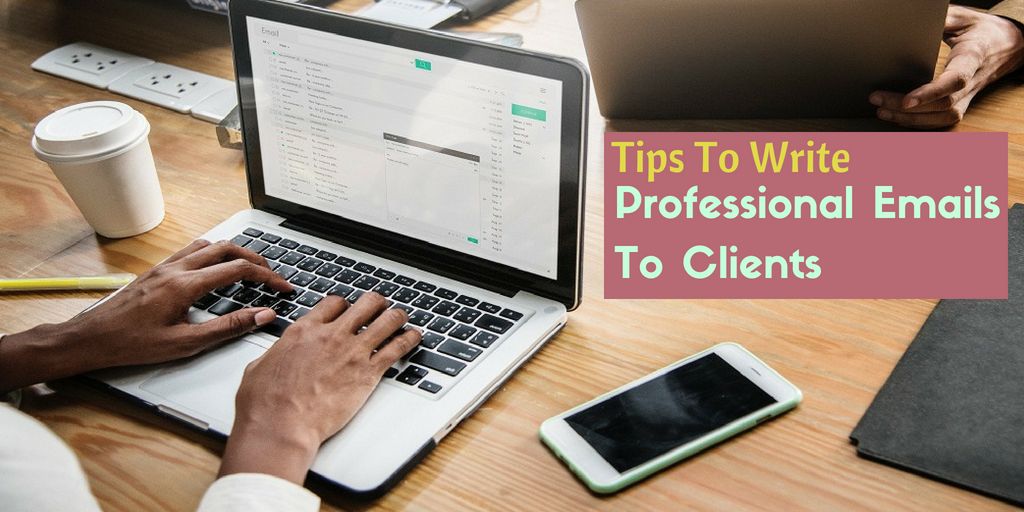
Correspondence is indispensable to any business relationship. In the freelance community, there is usually an absence of physical proximity and therefore, effective correspondence takes center-stage for the growth and development of the client-freelancer relationship.
A client-freelancer relationship needs to be nurtured with time and patience, and how you communicate with your client creates a huge difference. Whatever mode of communication you choose, you must communicate through it appropriately.
Correspondence through email is the most common mode of communication in the freelance community. It is quicker, in-depth, and professional, and respects the time and space of both the client and the freelancer. However, it is not as simple to communicate through email as it sounds. The world where professional email operates has different needs.
In this article, we will cover 10 tips regarding emails and how one can write them professionally. A properly written email shows professionalism and sincerity on the part of the freelancer which will inevitably lead to a good impression. Hence, take due note of these tips.
1. Read the email thoroughly
Whenever you receive an email from your client, take your time and read it carefully. You should consider reading it at least twice before drafting a response.
The point is simple: it is to ensure that you are fully aware of what the essence of the email is so that you have a better idea of how you should prepare your response. A half-baked reply is not excusable and can cost you your reputation. So, understand the email first and do not rush into writing responses.
2. Elaborate On Who You Are And What You Can Offer
If you are applying for a job, then you should keep this tip in mind. When you write an email to a prospective client, you need to give a good overview of who you are and what you can offer—and trust us, it is not simple to write this.
You should introduce yourself by succinctly mentioning your basic profile coupled with a brief description of your professional background. You must avoid rendering personal information in your email because the clients are not interested in your personal life and may consider you as desperate.
When you are enumerating reasons why you should be selected for the job, do not sound overbearing, repetitive and generic. There must be specificity in your expression so that the client can get a clear idea as to what you can offer.
3. Do Not Fool Around With Consistency
Call it a grammatical rule, but it is essential when you write professional emails. Always keep this in mind that you are a professional, a freelancer, and an improperly written email can scar your reputation severely.
When you write an email, make sure that there is consistency. There must remain continuity in successive paragraphs so that there is a sense in what you have written. For example, if you are writing about your basic profile and have abruptly jumped on the requirements of the project without fully explaining yourself, then there is no flow in the content.
4. Immediacy In Response
This is the 21st century that offers a world of well-connected technology allowing us to connect with each other instantly. This has contributed to the need to be more immediate with responses, especially in the business world.
We do not want you to sit back, glaring at your mobile screen every second, but you must set up your lifestyle as such to ensure that you have quick access to your email accounts. You do not have to respond instantly but within a reasonable amount of time. Clients really appreciate this.
5. Too Much Informal Language Is Bad
You should not be overly formal in your writing style and should try instilling a reasonable amount of friendliness. However, you cannot be too informal in your tone and language.
Avoid using slangs or localized English words into the content of your email because no matter how much friendly you are with the client it will not look good. For example, do not call your client “Bro” or “dude” when working with him, even if he is your best of friends.
Keep professionalism intact during work—that is all!
6. Address Every Point Systematically
Many people find it hard to reply to a lengthy email because there are sheer amounts of aspects which have to be dealt with. But, you cannot excuse yourself from this task and must learn.
Address each and every point in the client’s email in a systematic order. First, you should break down his email, filter out ancillary contents, and focus on what is left of the email. Now, address the points in the order they appear in the mail. This way, the client will be able to know the point to which you are referring in your response.
7. Mind The Subject Of The Mail
The often neglected, but one of the most important parts of an email is the subject line. Many people have this tendency to undervalue the subject line because they think it is just a small box to be filled up with a short statement. Well, it is more than that!
The subject line encompasses the essence of the email in a short statement. You cannot write anything which does not substantially pertain to the purpose of the email. Moreover, the statement has to be short, but many tend to write really lengthy and absolutely irrelevant subject lines.
Always remember that the object behind the subject line is to give a reflection on the overall content of the email to the reader. It is not the main body of the email to be very precise.
8. The Client Does Not Have An Entire Day To Read Your Email
Howsoever elaborate your email is, do not take it to extraordinary lengths. An email should explain everything you wish to explain without taking too much space and time. You must respect the time of the client—and sending over an obnoxiously lengthy email can really irk clients.
9. Conclude It Well
Your job is not done by simply typing down whatever was required and not concluding the email in an orderly fashion.
Once you have written the main body of the email, you must conclude it. You can use phrases such as “I am awaiting a positive response” or “I was glad to have heard from you” as per the content.
10. Wait, What About Signatures?
You are a businessperson and not having an email signature is quite a downer. So, get one before you lose all your credibility as a serious and professional freelancer.
A typical signature should include your full name, designation, the name of the company (if any), and contact information. Be precise with your signature and always add it to any business-related email you write.
Writing professional emails is of utmost importance in the freelance community. Clients are always looking forward to assessing your seriousness towards work, and how you write emails—believe it or not—gives them much help in their evaluation.
Our attempt, in this article, was to highlight those key areas in which work must be done to ensure that communication is smooth. By focussing on these areas, you can master the art of writing professional emails.
We believe that our article caters to major areas of this subject, but in case our readers think that there is more to it, then we would like to hear from them. You can also share the article to let the word spread and assist us in making our content better.




